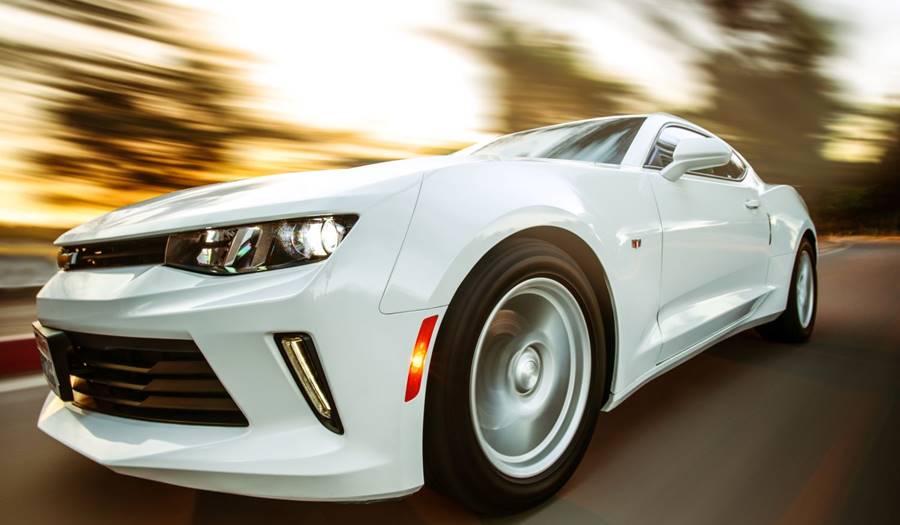
Navigating the End of a Car Lease: Understanding Your Options
7/5/2023
Leasing a car has become a popular alternative to traditional vehicle financing. It offers flexibility and affordability, allowing individuals to drive a brand-new vehicle without committing to a long-term loan. However, when the lease term nears its end, lessees are faced with an important decision: what to do with the car. There are three main options available; return the car, extend the lease, or purchase the car.
Option 1: Return the Car and Lease a New One:
At the end of the lease term, you have the option to simply return the car to the leasing company. This allows you to walk away without any further obligations or responsibilities. However, it's worth noting that excess mileage charges, wear and tear fees, and other penalties may apply, if you've exceeded the predetermined limits outlined in the lease agreement. Returning the car and leasing a new one is a suitable choice, if you enjoy driving a new vehicle every few years and appreciate the convenience of a hassle-free transition.
Mileage overage charges can range from 15-25 cents per mile. This can add up! If you’re over your mileage by 2,000 miles per year on a 3-year lease, that’s 6,000 miles overage or as much as an extra $900 to $1500 when you return your car.
Learn more: Car Buying Tips
Option 2: Extend the Lease:
If you're not quite ready to part ways with your leased car, some leasing companies offer the option to extend the lease for a pre-determined period. This can provide you with more time to decide on your next move or allow you to continue driving a vehicle you're comfortable with. It's essential to carefully review the terms of the extension, as the monthly payments and any potential maintenance responsibilities may differ from the initial lease agreement.
Option 3: Lease-to-Own:
Lease-to-own, also known as lease buyout, is an attractive option for those who have grown fond of their leased vehicle and wish to retain ownership. This process involves purchasing the car at the end of the lease term. There are typically two types of lease buyouts:
Residual Value Purchase: This is the most common method. The residual value is the pre-determined amount specified in the lease agreement, representing the car's estimated worth at the end of the lease term. You can exercise your option to purchase the vehicle by paying the residual value, plus any additional fees or charges outlined in the agreement. This option offers the advantage of knowing the car's history and condition, providing peace of mind for the buyer. The residual value of the car will be clearly stated in your lease agreement.
Under the Consumer Leasing Act of 1976, it is illegal for a car dealership to charge any fees that are not listed in the original lease agreement when there is a buyout. While taxes are applicable, fees that are undisclosed are not. Be sure to check the fine print for any fees and question their validity with the dealership. Such unnecessary fees may include a ‘Certified Pre-Owned’ fee, or the notoriously illegal ‘Tri-state Lemon Law’ fee of up to $4,000. Read the fine print!
Market Value Purchase: In some cases, the market value of the car may be lower than the residual value stated in the lease agreement. This can occur if the vehicle has depreciated more than expected or if there are market factors at play. In such instances, you can negotiate with the leasing company to purchase the car at its current market value. This option may require some negotiation skills to secure a fair price.
In the current car market, the price for well-maintained secondhand cars has significantly risen due to a shortage of new cars in the wake of the pandemic. It is unlikely that your car has depreciated in value more than expected over the term of your lease.
Considerations When Buying a Leased Car:
Before deciding to buy your leased car, here are some factors to consider:
Vehicle Condition: Assess the car's overall condition, including its mileage, maintenance history, and any wear and tear. This will help you determine if it's worth purchasing or if potential issues may arise.
Financing Options: Explore financing options available to you. You can choose to pay the full amount upfront, obtain a traditional auto loan, or explore other financing alternatives such as refinancing or leasing-to-purchase loans.
Market Research: Research the market value of similar vehicles to ensure you're getting a fair price. Consider factors such as make, model, year, mileage, and overall condition when comparing prices.
Maintenance and Warranty: Understand the vehicle's remaining warranty coverage and any associated maintenance costs. This information will help you plan for potential future expenses.
As your car lease approaches its end, it's essential to evaluate the available options and choose the one that best suits your needs. Whether you decide to lease a new vehicle, extend your existing lease, or purchase your leased car, understanding the process and considering the factors mentioned above will empower you to make an informed decision. Buying a leased car can be a financially advantageous option if you've grown attached to the vehicle and find it well-suited to your lifestyle.
Lori Stratford is the Digital Marketing Manager at Navicore Solutions. She promotes the reach of Navicore's financial education to the public through social media and blog content.
You can follow Navicore Solutions on Facebook, Twitter, LinkedIn and Pinterest. We'd love to connect with you.
